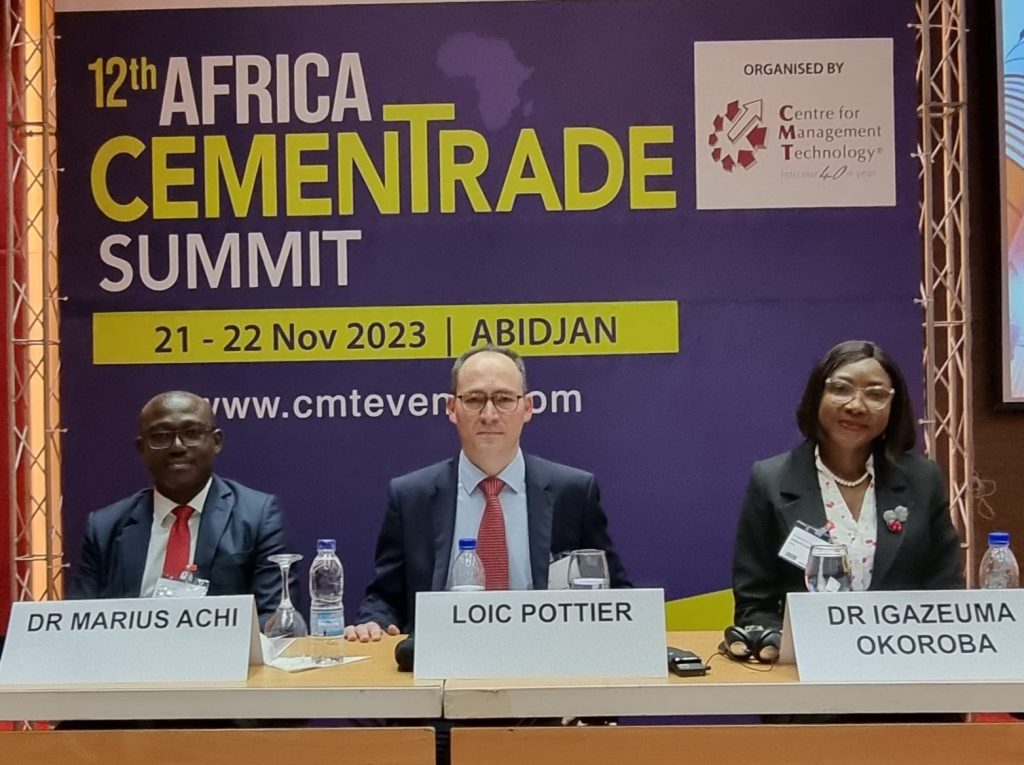Daud Olatunji
Dangote Cement Plc’s Group Managing Director, Mr. Arvind Pathak, has attributed a compelling vision for sustainable cement production as a key strategy in combating climate change.
Pathak said this at the 12th Africa Cement Trade Summit, organized by the Singapore-based Center for Management, brought together industry leaders to discuss the pressing challenges facing the cement sector.
In his presentation titled “Utilisation of Alternative Fuels as a Strategy for Sustainable Cement Production in Africa,” Pathak emphasized the imperative of decarbonization in the cement industry.
He highlighted the energy-intensive nature of cement production and underscored the pivotal role of alternative fuels, such as municipal, agricultural, and industrial wastes, in reducing emissions.
Pathak pointed out that with global cement consumption reaching 4.2 billion tonnes in 2020 and a projected population growth of 12-23% by 2050, the demand for cement is set to surge. This necessitates a strategic shift towards incorporating alternative fuels into the production process to address climate change concerns.
Dangote Cement, a pioneer in decreasing CO2 emissions through a fuel substitution strategy, has transitioned from being the world’s largest bulk cement importer to a net exporter.
The company’s commitment to sustainability is evident in its Climate Change Policy and Environmental Pillars, focusing on energy efficiency, waste management, water consumption, and greenhouse gas emissions monitoring.
As part of its Alternative Fuel (AF) Project, Dangote Cement aims to continuously improve performance and contribute to Africa’s climate change mitigation efforts. Pathak stressed the importance of clear and detailed short, medium, and long-term decarbonization targets for businesses in the evolving landscape of climate consciousness.
In response to global climate shocks, Mr. Pathak emphasized that decarbonization is not just an option but a necessary component to future-proof businesses.
He asserted that companies thriving in this new era are those decarbonizing while strategically shifting towards faster-growing areas.
Dangote Cement’s efforts extend beyond environmental sustainability to addressing Africa’s waste challenges. Pathak highlighted the role of alternative fuels in waste management, stating that Sub-Saharan Africa is predicted to become the prevalent region globally in terms of total waste generation.
Dangote Cement, with its commitment to treating hazardous waste in cement kilns, provides a solution to the continent’s waste problem.
While acknowledging that emissions challenges persist, Mr. Pathak expressed optimism about the cement industry’s continued contribution to tackling climate change.
He concluded by outlining various strategies, including improving the energy mix, optimizing design, and investing in CO2 sinks like reforestation and renewable energy.
Dangote Cement’s proactive stance positions it as a regional leader in sustainability, aligning its operations with global climate goals and contributing to Africa’s journey toward a greener and more sustainable future.
Do you want to share a story with us? Do you want to advertise with us? Do you need publicity for a product, service, or event? Contact us on WhatsApp +2348183319097 Email: platformtimes@gmail.com
We are committed to impactful investigative journalism for human interest and social justice. Your donation will help us tell more stories. Kindly donate any amount HERE



